Key takeaways
- Local business fundraising focuses on building relationships based on trust and community values, rather than strictly financial transactions.
- Effective engagement involves personalized communication, highlighting the mutual benefits for both the campaign and the businesses.
- Networking events and informal conversations can foster genuine connections, making business owners feel valued and more likely to support fundraising efforts.
- Overcoming skepticism requires consistency, respect for their time, and open, honest communication about shared goals and values.
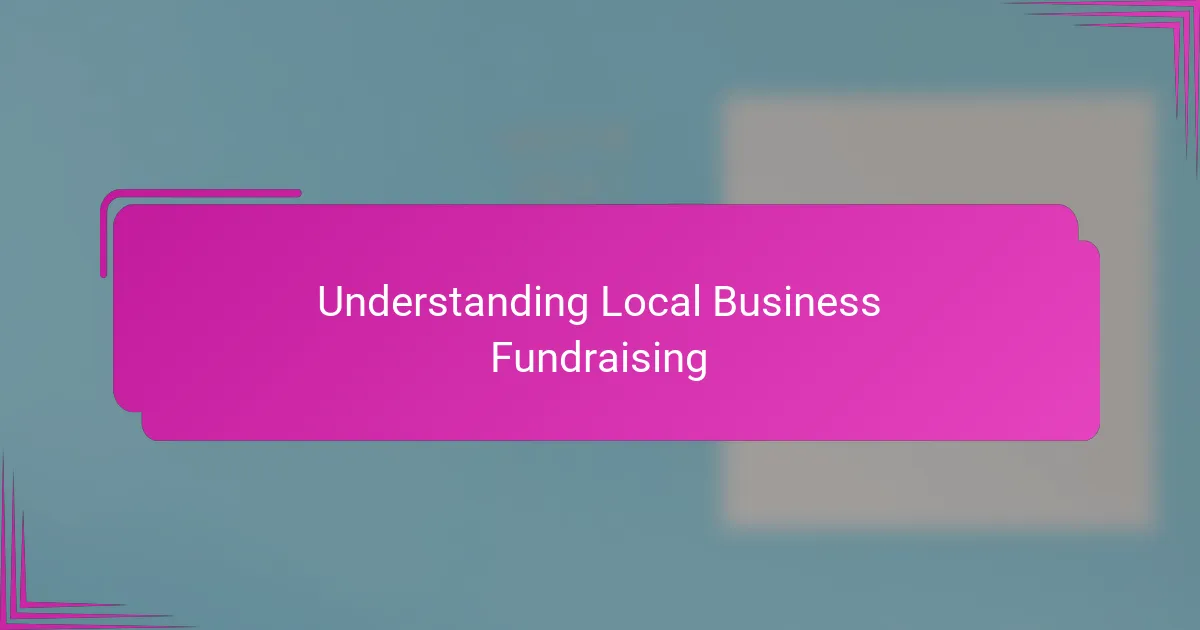
Understanding Local Business Fundraising
When I first started reaching out to local businesses for fundraising, I realized how much their priorities differ from large corporations. These businesses often seek personal connections and want to support causes that resonate with their community values. Have you ever noticed how a simple conversation can open doors far wider than a formal pitch?
The real magic happens when you understand that local business fundraising isn’t just a transaction; it’s a relationship built on trust and mutual benefit. I’ve seen small shop owners enthusiastically back campaigns they believe in because they see themselves as part of the broader community fabric. This emotional investment often leads to long-term support beyond just monetary contributions.
It’s important to remember that many local businesses operate on tight margins and need to feel confident their involvement will enhance their reputation locally. I found that framing fundraising efforts in a way that highlights this win-win scenario helped me engage them more effectively. After all, who wouldn’t want to support a cause that uplifts their own neighborhood?
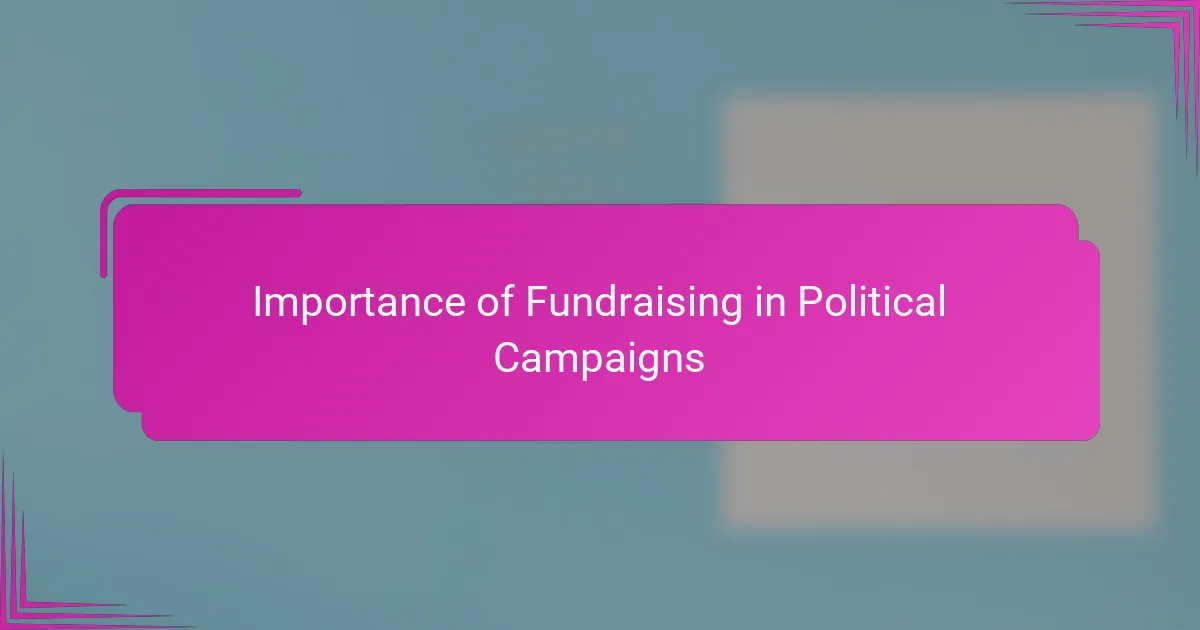
Importance of Fundraising in Political Campaigns
Fundraising in political campaigns isn’t just about the money—it’s about fueling a movement. I’ve noticed that without sufficient funds, even the best ideas can’t reach voters effectively. Have you wondered how some campaigns get their message heard everywhere? Money enables everything from grassroots events to crucial advertising.
In my experience, fundraising is the backbone that keeps a campaign alive and competitive. It’s not just handing over checks; it’s rallying support, showing momentum, and building credibility. Sometimes, a strong fundraising report can sway undecided voters by demonstrating community trust and enthusiasm.
What struck me most is how fundraising connects people to a cause on a deeper level. When donors chip in, they become part of the campaign’s story. I’ve seen firsthand how this sense of involvement energizes volunteers and amplifies grassroots power, making fundraising far more than just a financial necessity.
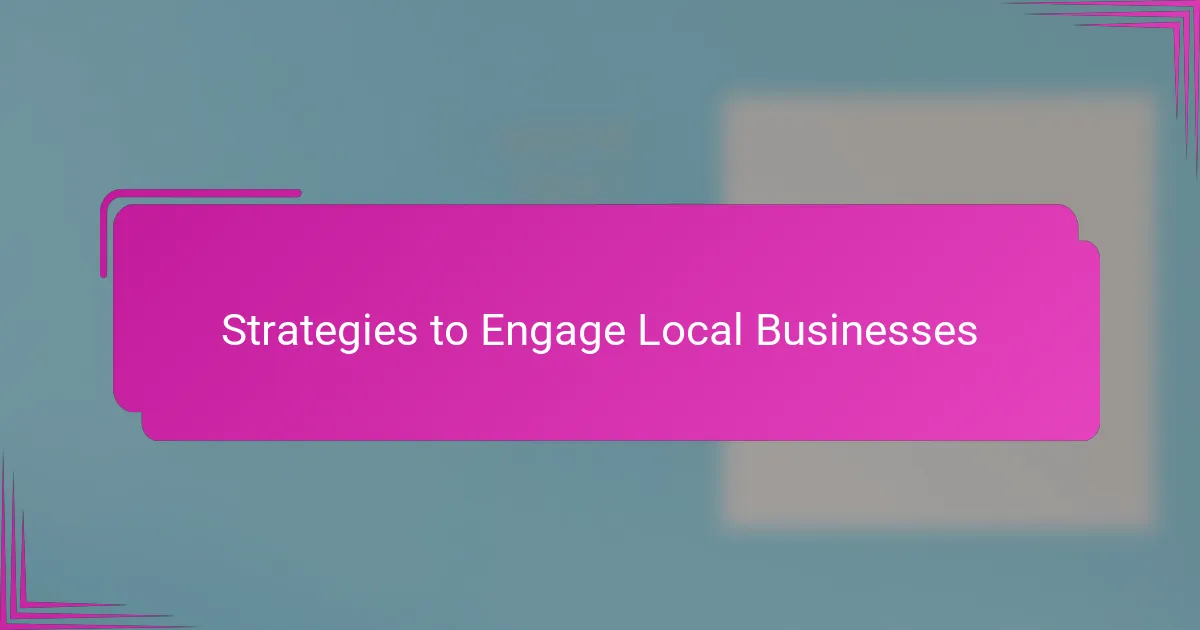
Strategies to Engage Local Businesses
One strategy I’ve found effective is attending local business networking events. It’s surprising how much rapport you can build over a casual chat rather than a formal meeting. Have you ever been to a small-town chamber of commerce mixer? Those moments of genuine connection often lead to enthusiastic support because business owners feel personally valued.
I also like tailoring the message to highlight how supporting a campaign benefits the local economy and community spirit. When I explained to business owners that their contribution helps elect leaders who protect local interests, they saw it as more than just a donation—it became an investment in their neighborhood’s future. Framing it this way makes the conversation less transactional and more meaningful.
Another approach that worked well was offering flexible involvement options. Not every business can write a check, but many were happy to donate goods or services for events. Asking, “What can you comfortably contribute?” instead of “Can you donate money?” opened doors I hadn’t expected. This made fundraising accessible and inclusive, building goodwill that lasted beyond the campaign.
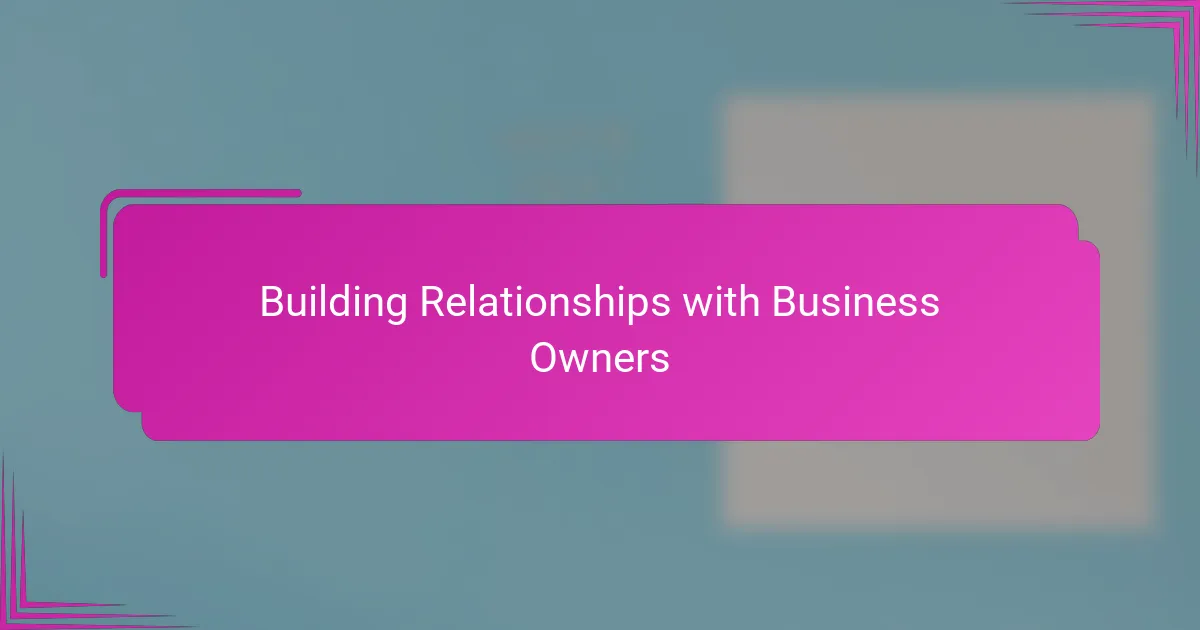
Building Relationships with Business Owners
Building genuine relationships with business owners requires patience and sincerity. I remember meeting a local bakery owner who initially seemed hesitant, but after a few friendly visits and casual conversations about community goals, she became one of my most enthusiastic supporters. Have you ever noticed how simply showing interest in their story can break down barriers faster than any pitch?
It’s not just about what you need—it’s about what you can offer in return. I’ve made it a point to listen carefully to business owners’ challenges and celebrate their successes alongside them. This mutual respect created a foundation where they felt comfortable engaging in fundraising because it wasn’t just “business” anymore; it was a shared mission.
Sometimes, the best connections happen outside formal settings—over coffee or during unexpected encounters at local events. I found that these moments allowed me to learn what truly motivates each owner. What keeps them up at night? What are they proud of? Understanding these personal dimensions helped me tailor my approach, making partnership invitations feel natural rather than forced.
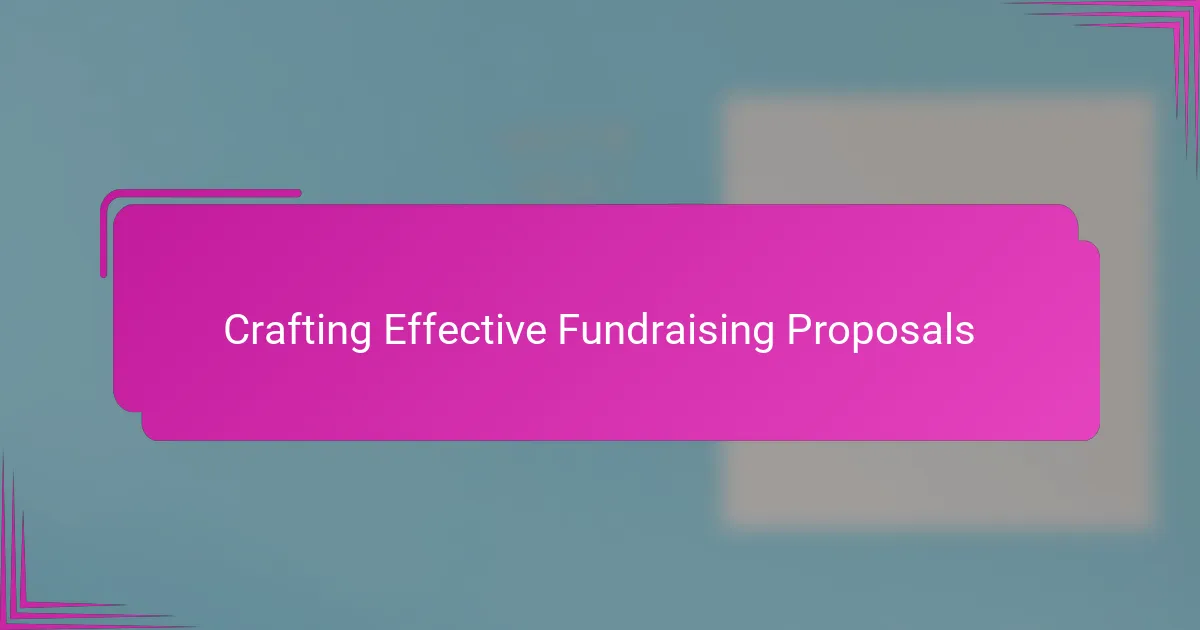
Crafting Effective Fundraising Proposals
When I first sat down to craft fundraising proposals for local businesses, I quickly realized that a generic form letter wouldn’t cut it. Have you ever tried to capture the heart of a business owner in just a page or two? I found that weaving in specific references to their community role and demonstrating how their support advances shared values made a far stronger impression than any broad appeal.
Personalization became my secret weapon. I recall drafting a proposal for a family-run bookstore where I highlighted how our campaign’s platform aligned with promoting education and literacy—causes they deeply cared about. This not only showed I’d done my homework but also made the ask feel sincere and tailored, leading to a meaningful commitment that felt like more than just a donation.
I also learned to be clear and concise, respecting their busy schedules by outlining exactly what support I was seeking and how it would be recognized locally. Would you take time to read a proposal that’s cluttered and vague? Neither would I. Clarity and respect for their time created trust, which, in my experience, is the foundation of every successful fundraising partnership.
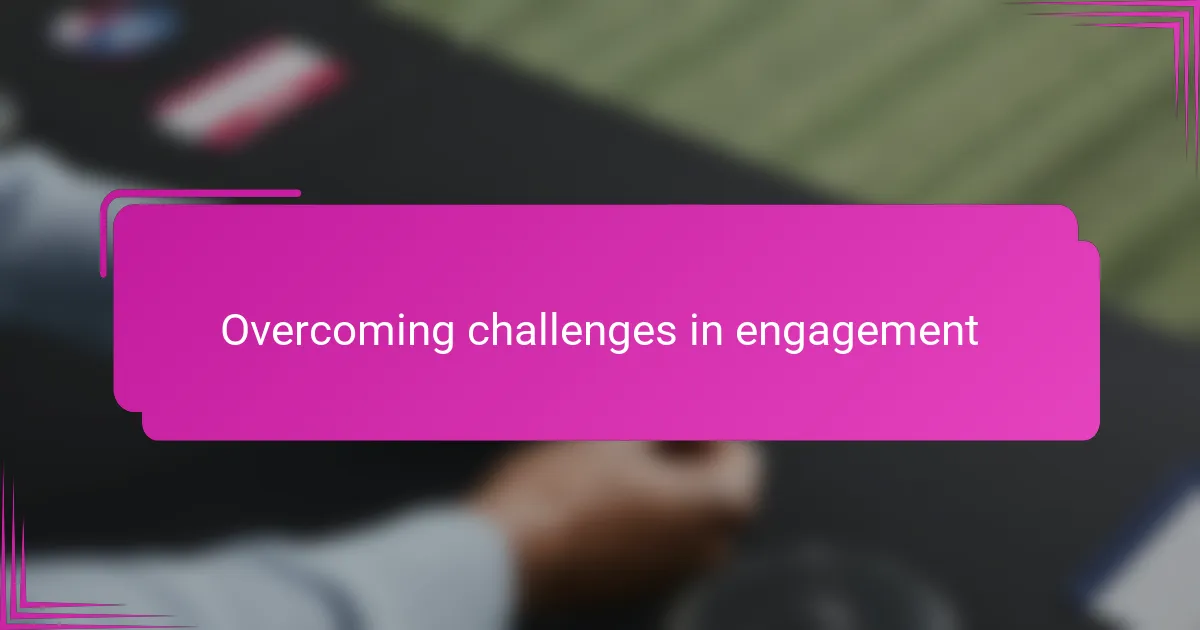
Overcoming Challenges in Engagement
One challenge I frequently encountered was overcoming skepticism from business owners who had been approached by campaigns before but saw little follow-through. How could I convince them this time would be different? By consistently showing up, keeping my promises, and providing updates, I gradually built credibility that turned initial doubt into genuine enthusiasm.
Another hurdle was navigating their busy schedules. I quickly learned that persistence needs to be paired with respect for their time. Instead of demanding lengthy meetings, I adapted to brief, meaningful conversations—sometimes during a quick coffee break—that made engagement feel less like an obligation and more like a natural exchange.
Sometimes, I faced the challenge of businesses hesitant about publicly supporting a political campaign. Addressing their concerns openly, assuring discretion when needed, and emphasizing shared community values helped ease their fears. Have you noticed how honesty and transparency often break down the toughest walls? In my experience, these conversations deepened trust and opened doors that once seemed firmly closed.